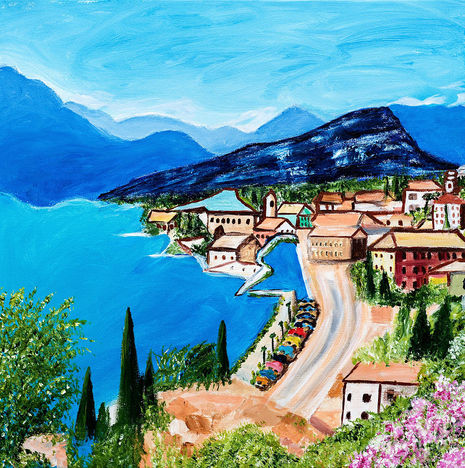On Being Tricultural in Cambridge
Anja Gogo explores the significance of her tricultural identity and how she manages to find reminders of home in Cambridge

Where are you from?
A simple enough question? Let me introduce my (rather more complicated) answer. I was born in Italy to Albanian parents and I have been living in England for four years. However, not all of the cultures that belong to my identity shape and define me in equal measures. For instance: my Albanian roots are purely origins, mostly consisting of fond memories of summer holidays spent with my parents, and so are perhaps more relevant to my parents’ identity than mine. Personally, I consider myself as Italian first and foremost, since Italy was my home until my fifteenth birthday. Where, then, does the third English culture come into play? This answer is more simple: when living in a country, you gain some new perspectives that you would never have appreciated before. As a result, I am able to experience different aspects of my identity both as an outside observer and as an incognito listener.
Even if Cambridge was culturally unfamiliar at first glance, there are more reminders of home than I first thought possible. In fact, there are many international students going through the same experience in Cambridge. While wandering the streets, immersing myself in a Spotify playlist isn’t my first choice of entertainment anymore. Instead, I listen out for people speaking the familiar languages of Albanian and Italian. It doesn’t consume my phone battery and it makes me feel more connected to my surroundings, as well as reminding me of my other homes. A shout out to Aromi and Modigliani is also due here for bringing the wonderful taste of Italy to Cambridge.
“Even if Cambridge was culturally unfamiliar at first glance, there are more reminders of home than I first thought possible”
However, my identity differs when compared to many international freshers. I moved to England four years ago, so it isn’t ‘as new’ to me as someone stepping onto British soil for the first time last fall. I’ve got used to the sound of English, my brain having become attuned to it, and the routine of eating fish and chips on Fridays at school quickly became second nature. Despite this, I think there is something about being an international, multicultural individual that stays with you no matter what. Your original cultural suitcase never leaves you. Instead, it evolves in a process of growth where the new place, your new house, becomes more familiar to your present. Your old place and habits move back into your memory. The great divide between the past and the present may be hard to ignore, but over time you manage to create your own little world, shaped by the integrated customs of your cultures. This is almost a mantra to me, something I strive to do daily to beat the nostalgia.
“I am eternally grateful for the abundance of Kinder Happy Hippos in England, following their mysterious absence in Italy”
More often than not, this is accomplished indirectly. The Italiamo sections at Lidl never fail to lighten up a trying day, while I am eternally grateful for the abundance of Kinder Happy Hippos in England, following their mysterious absence in Italy. Even reading Jack’s Gelato instead of the standard ‘ice-cream’ makes me happy. Gelatos aside (hazelnut and dark chocolate being my personal favourite), languages can create a barrier between communities. It is hard to internalise a sense of belonging if you’re still searching up words in the dictionary. However, I don’t think the barrier represents an insurmountable obstacle, especially if we step outside of our perspective and immerse ourselves in this new culture. Even though it can be hard, this process isn’t as difficult as many internationals could fear. Our cultures don’t need to exist in separation from one another at all. Instead, if we integrate our cultures together in a melting pot of respect, pride, and – most importantly – unlimited curiosity, we can learn many new things.
A final note: when lectures and supervisions are all in English, it’s easy and very normal to miss your own language. But the good news is that visual and auditory reminders can be found. So if you’re feeling down and missing home, remember this: there is a whole multicultural universe out there, and it’s potentially only a five-minute walk from your room. Or at least that’s what I can say as a central college girl who doesn’t ride a bike. But even if you live in the outskirts, do not fear. It may take longer, but it will be worth the trek.
 News / SU reluctantly registers controversial women’s soc18 December 2025
News / SU reluctantly registers controversial women’s soc18 December 2025 Features / Should I stay or should I go? Cambridge students and alumni reflect on how their memories stay with them15 December 2025
Features / Should I stay or should I go? Cambridge students and alumni reflect on how their memories stay with them15 December 2025 News / Dons warn PM about Vet School closure16 December 2025
News / Dons warn PM about Vet School closure16 December 2025 News / Cambridge study finds students learn better with notes than AI13 December 2025
News / Cambridge study finds students learn better with notes than AI13 December 2025 Comment / The magic of an eight-week term15 December 2025
Comment / The magic of an eight-week term15 December 2025









